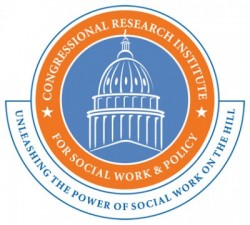Of all those actively seeking the presidency, former Secretary of State, Senator and First Lady Hillary Clinton seems to be the most likely successor. It is not just because she is the most qualified among those seeking the presidency, nor is she the least disliked among the candidates, but it’s probably about time a woman gets the chance to lead the nation and demographics increasingly favor Democrats winning the White House. According to the most recent Real Clear Politics consensus poll, Clinton leads former Florida Governor Jeb Bush by 7.7 points (Fox News has the matchup as a tie). She leads Wisconsin Governor Scott Walker by 9.2 points, Kentucky Senator  Rand Paul by 8.6 points, Florida Senator Macro Rubio by 8 points, Dr. Ben Carson by 13.3 points, former Arkansas Governor Mike Huckabee by 11.7 points, and New Jersey Governor Chris Christie by 10.2 points. Much can happen with more than a year and a half left before the election, but Hillary Clinton is clearly the frontrunner.
Rand Paul by 8.6 points, Florida Senator Macro Rubio by 8 points, Dr. Ben Carson by 13.3 points, former Arkansas Governor Mike Huckabee by 11.7 points, and New Jersey Governor Chris Christie by 10.2 points. Much can happen with more than a year and a half left before the election, but Hillary Clinton is clearly the frontrunner.
It is far too soon to know who the Republican nominee will be. In the April 15th Public Policy Polling results in New Hampshire, Scott Walker led the pack with 24 percent—ten percentage points ahead of his next rival, Texas Senator Ted Cruz. Rand Paul (12%) and Jeb Bush (10%) managed double digits while Florida Senator Marco Rubio (8%), Christie (8%), Huckabee (7%), Carson (7%) and former Texas Governor Rick Perry (4%) rounded out the field.
 So, should we wake up on Wednesday, November 9th with the first woman President of the United States in Hillary Clinton, what will social workers expect from her during her first four years? I say we should avoid making the same mistake Dr. Cornell West and Tavis Smiley made who have spent the last seven years criticizing President Obama for not having a sufficient agenda for black Americans when they failed to present the President with a specific policy agenda they wanted him to support. What are the specific policies social workers would like to see advanced during a Hillary Clinton administration? That policy agenda should be made known before she goes into the White House. We may not agree on everything but certainly there are several key policy proposals we can all get behind.
So, should we wake up on Wednesday, November 9th with the first woman President of the United States in Hillary Clinton, what will social workers expect from her during her first four years? I say we should avoid making the same mistake Dr. Cornell West and Tavis Smiley made who have spent the last seven years criticizing President Obama for not having a sufficient agenda for black Americans when they failed to present the President with a specific policy agenda they wanted him to support. What are the specific policies social workers would like to see advanced during a Hillary Clinton administration? That policy agenda should be made known before she goes into the White House. We may not agree on everything but certainly there are several key policy proposals we can all get behind.
Of course, this is easier said than done. How do social workers come up with a relatively concise and specific list of policy priorities we would like to see implemented during another Clinton Administration? There are many notable policy social work scholars who can assist in developing a policy agenda. We can begin with economist Jared Bernstein, a product of Columbia University School of Social Work’s doctoral program. So is Lonnie Berger, the director of the Institute for Research on Poverty. CRISP has several distinguished policy scholars on our advisory board including Michael Reisch at the University of Maryland and Jane Waldfogel at Columbia University. All the ideas need not come from social work scholars. Developing social work policy priorities, while a social work-led endeavor, should draw on ideas from other disciplines. Former Labor Secretary Robert Reich, Washington Center for Equitable Growth Executive Director Heather Boushey, and economist Joseph Stiglitz all have worthwhile policy prescriptions.
Once packaged, I am certain social work leadership can get these ideas to candidate Hillary Clinton—if not through direct communication certainly through a high-level member of her staff. National Association of Social Workers (NASW) CEO Angelo McClain, NASW President Darrell Wheeler, Council on Social Work Education (CSWE) President and CEO Darla Coffey should be able to have that conversation. As can Linda Rosenberg, CEO of the National Council for Behavioral Health, who had Hillary Clinton as the National Council’s 2014 conference keynote speaker. Certainly, Congressional Social Work Caucus Chair Congresswoman Barbara Lee can get a meeting with Hillary Clinton and deliver the Social Work Policy Agenda. There are other names that could or should be in this blog post, but you get the picture.
Why should President Hillary Clinton care about what social workers want? Candidate Clinton is on a listening tour and may well be interested in hearing social work policy ideas. She says she wants a more egalitarian society—so do social workers. She says she wants to see the overturn of Citizens United v. FEC—so do social workers.
Oh dear, there goes my alarm clock. It’s time to stop dreaming and get ready for work.
Written By Charles E. Lewis Jr., Ph.D
What Should Social Workers Want from Hillary Clinton? was originally published @ Congressional Research Institute for Social Work and Policy » Charles Lewis and has been syndicated with permission.
Sources:
Our authors want to hear from you! Click to leave a comment
Related Posts






